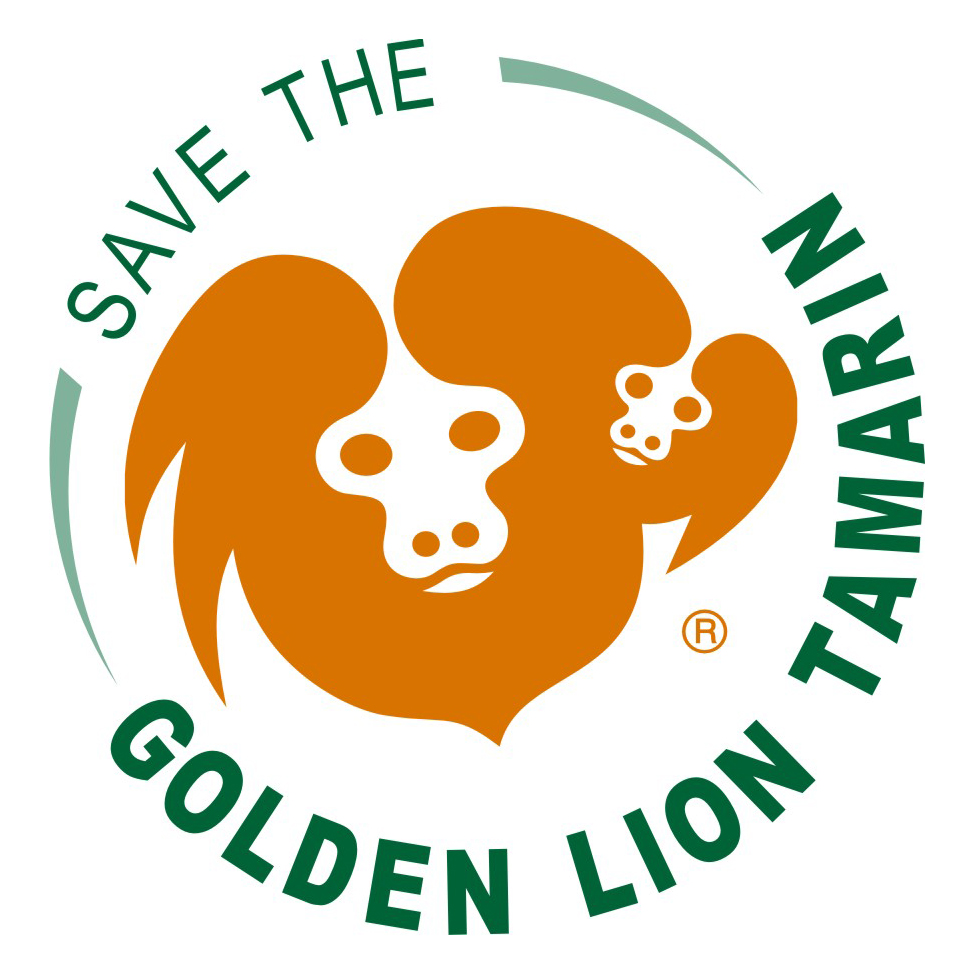Golden Lion Tamarin Updates on Earth Day's 50th Anniversary
Photo by Andréia Martins/AMLD
We asked Associação Mico-Leão-Dourado's (AMLD) Secretary General Luís Paulo Ferraz and Save the Golden Lion Tamarin's (SGLT) President Lou Ann Dietz and Vice President Jim Dietz for updates on GLTs on this historic day.
What is the effect of COVID-19 on GLT Conservation in Brazil? Can GLTs become infected? Are you worried?
We don’t know whether GLTs can get COVID-19. However, AMLD is working under the assumption that they can get the disease and is taking every precaution to ensure that they are not exposed to it. Following Brazilian federal guidelines, AMLD temporarily suspended their monitoring of GLTs. We are worried for three reasons: AMLD staff and perhaps GLTs are at risk; moreover, the people and institutions that support AMLD’s work are in economic distress caused by the disease. Decreased donations could make it difficult for AMLD to pay salaries and to do its incredibly important conservation work.
How is AMLD staff in Brazil dealing with COVID-19? Does work continue?
The number of current cases of COVID-19 in humans within the GLT range is increasing, and there have been some deaths. Local decision makers have closed schools and are promoting social distancing to slow the spread of the virus. AMLD closed its office and cancelled in-person events (planning workshops, teacher training, agroecology courses, ecotourism) until further notice. Field monitoring of GLTs is temporarily discontinued, but maintenance of planted corridors continues. Most AMLD staff are self-isolated in their homes taking their paid one-month annual vacation leave collectively. Those who can are working from home and adapting work plans to the new reality.
Is SGLT affected by COVID-19?
SGLT’s all-volunteer board and advisors continue to work virtually as they always have. 100% of your donations to SGLT directly support GLT conservation in Brazil.
What’s the most recent update on yellow fever? Are we still concerned? Will it come back? Is there a vaccine?
Yellow fever caused a 32% reduction in the GLT population in 2018. AMLD received reports of additional GLT mortality in 2019, perhaps due to yellow fever, but they were not able to confirm the reports. Yellow fever was documented recently in states near Rio de Janeiro, so we have to assume that the yellow fever virus is still present in some of the forests occupied by GLTs. AMLD partners used captive lion tamarins to develop a safe and effective yellow fever vaccine, the first such vaccine for a non-human primate. AMLD is waiting on federal permits to use the vaccine to protect wild GLTs.
What can I do to help GLTs right now?
Make a donation to SGLT to help AMLD’s staff continue their work.
US taxpayers, please consider donating all or part of your CARES Act stimulus payment.
The US federal coronavirus relief bill grants taxpayers an above-the-line deduction for up to $300 in charitable donations starting in 2020. Normally, you have to itemize deductions to get a tax write-off for charitable donations. In this case, the break is available to people who claim the standard deduction.
Transfers to SGLT of distributions made directly from your IRA are tax free. Contact us to find out more.
Conduct an online fundraiser for SGLT.
Help your local zoo to continue to support GLT conservation. All 150 zoos around the world that maintain the GLT insurance population in captivity are closed. With no income, zoos are having difficulty maintaining their staff to care for animals, and our zoo partners have little or nothing available to contribute financially for GLT conservation in the field.
Share information about SGLT/AMLD’s work with your friends.
Share what YOU are doing to support GLT conservation with us (on Facebook or at contact@savetheliontamarin.org).
Do you have graphics, website design, or social media expertise? Contact us to learn how you can help us with the August 2 GLT Day campaign.

